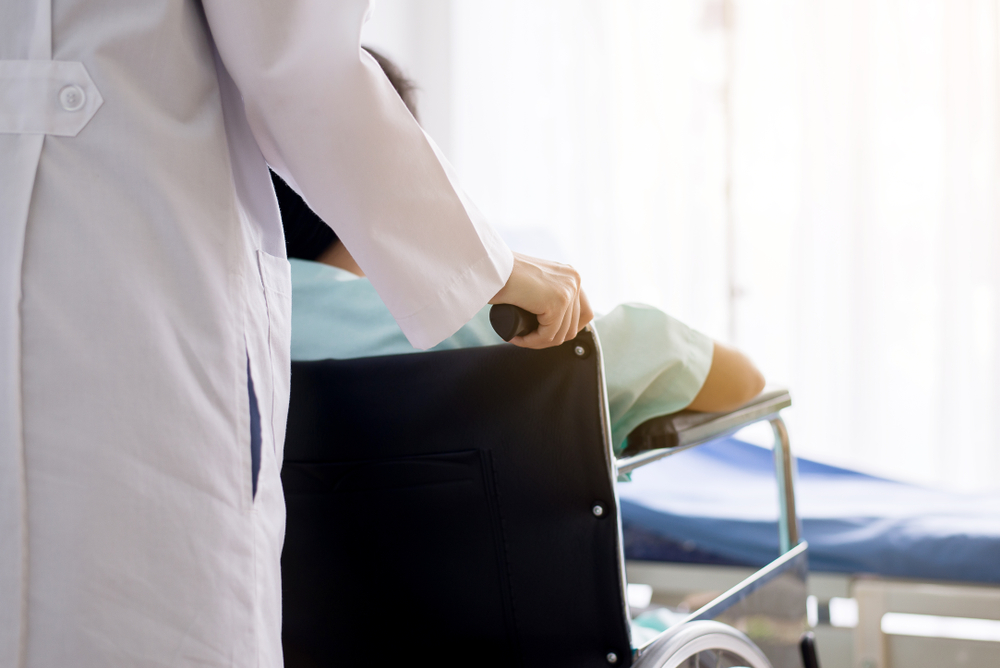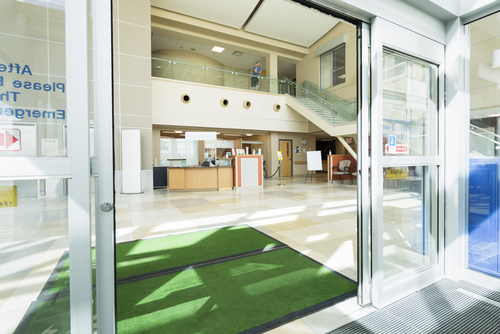Knee Replacement Recovery Time for Elderly Adults: Post-Op Home Care
Category:

Many elderly adults suffer from joint pain as they age and their bodies begin to “wear out.” Often this pain is caused by osteoarthritis, and one of the joints most affected is the knee. Luckily, technology is an amazing thing, and it is now not only possible but common to undergo total knee replacement surgery. In knee replacement surgery, the entire knee joint is replaced with an artificial joint made of metal alloys, high-grade plastics, and polymers. Over 600,000 people have knee replacement surgery each year, and the replacement joint lasts for at least 15 years.
Risks of Knee Replacement Surgery in the Elderly
The risks associated with knee replacement in the elderly are relatively few. Approximately 8% of patients over the age of 65 who underwent knee replacement surgery experienced a complication. The most common complication is a reaction to the anesthesia. Generally, this reaction is nausea and vomiting after the surgery, and it passes quickly. The chances of a negative reaction to anesthesia are reduced as long as you disclose all medications and drug use to your doctor before surgery.
Blood clots are possible after any surgery but are more common after orthopedic surgeries like a knee replacement. Blood clots sound scary, but they are generally preventable. Your doctor may provide blood-thinning medications if blood clots are a concern. The risk of clots can also be reduced with support stockings, lower leg exercises, and keeping your legs elevated to increase circulation. Fewer than 3% of patients reported experiencing blood clots after surgery.
Other even less likely risks include infection and allergic reaction. Infections are rare and can be prevented by following all your doctor’s directions to keep your wound clean. An allergic reaction to the knee replacement components is rarer, as most people who have a metal allergy know it before the surgery.
Download a Free Guide to Home Care
Knee Replacement Recovery Time for Elderly
Recovering from knee replacement begins almost as soon as you wake up from surgery. A physical therapist will help you stand up that same day. You will likely be discharged from the hospital within one to three days and sent home with a physical therapy plan – either at-home rehabilitation or going to a rehab center.
Total knee replacement recovery time for the elderly is about twelve weeks. You will likely need a walker or crutches to get around for the first two to three weeks. Within four to six weeks, you should notice a significant decrease in swelling and a significant increase in movement ability. For about four to six more weeks, you will continue working with a physical therapist to increase your range of motion in your new knee and build muscles around the new joint.
The most important thing to remember in your recovery is to follow your doctor and physical therapist’s directions. They will help you make progress without going too fast too soon, which would ultimately slow down your recovery.
Alternatives to Knee Replacement for Elderly
If you’re not sure surgery is right for you, or you’re just not ready to invest in an entirely new joint, other options can help reduce pain and increase movement. As with almost any health issue, the first thing to consider when hoping for improvement is exercise and weight loss. According to Healthline, “Research shows that every extra 10 pounds increase the chance of developing knee osteoarthritis by 36 percent. At the same time, losing 10 pounds may mean you have 4 times less force pressing on your knees.” Low impact exercises like yoga and tai-chi can be useful and easy for the elderly to do.
Some other alternatives to knee replacement surgery include physical therapy, pain medications (both over the counter and prescription), acupuncture, and steroid injections. A less invasive arthroscopic surgery could also be used to remove bone fragments or repair cartilage.
Ultimately, knee replacement surgery is safe and effective to help relieve pain and regain movement ability.
Subscribe
Date: February 9, 2021
Category:


